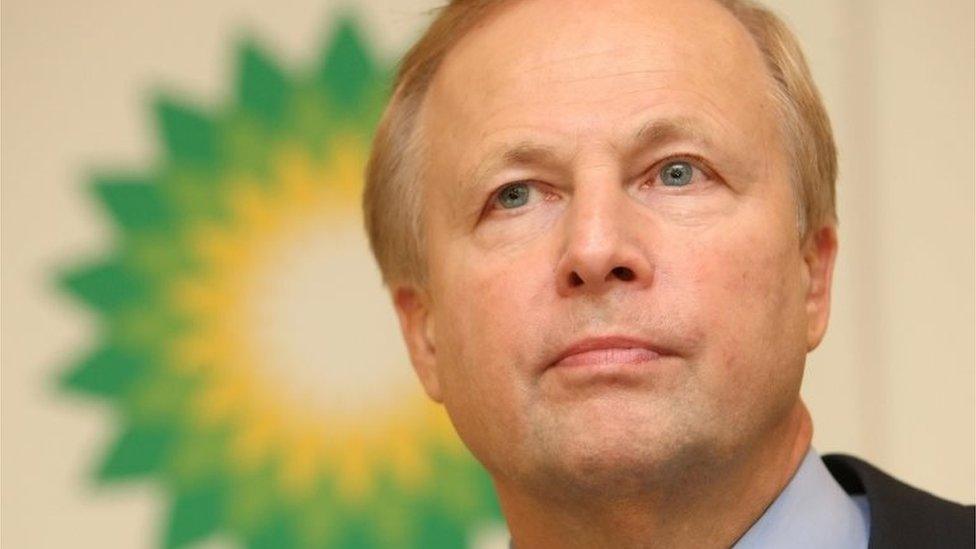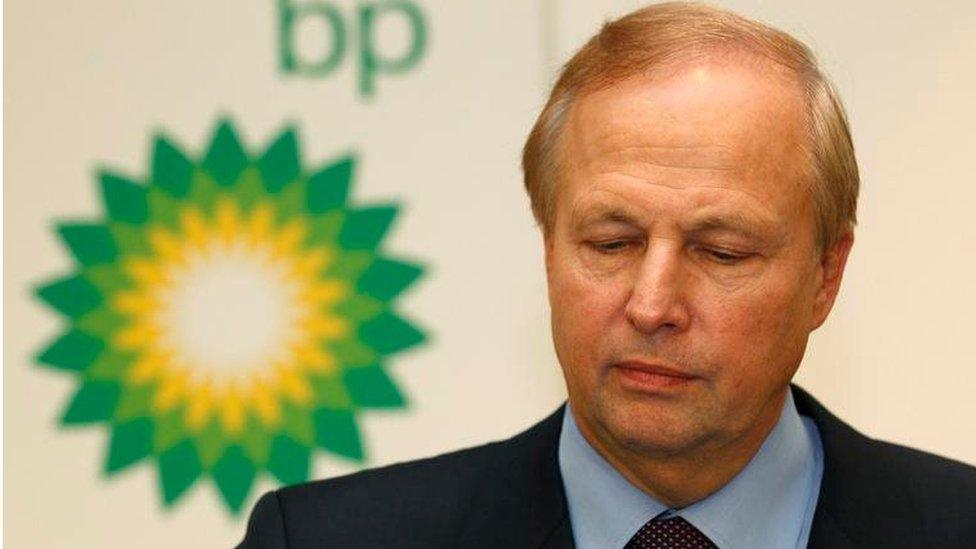Executive pay is eroding confidence, says group of UK bosses
- Published

The shareholder revolt against BP chief executive Bob Dudley pay last week was one of the largest seen in the UK
Executive pay in the UK is "not fit for purpose" and needs reform, according to a group that included some of Britain's most high-profile bosses.
The Executive Remuneration Working Group said there was "widespread scepticism and loss of public confidence" over executive pay.
Sainsbury's chairman David Tyler and Legal & General chief executive Nigel Wilson worked on the interim report.
The report wants reform of long-term bonus schemes and more transparency.
Mr Wilson, the working group's chairman, said: "The current approach to executive pay in UK listed companies is not fit for purpose, and has resulted in a poor of alignment of interests between executives, shareholders and the company.
"Greater transparency, clearer alignment of shareholder, company and executive interests, more accountability on the part of Remuneration Committees and greater engagement with and control by shareholders, working through company boards, are vital to restore confidence in a system widely seen as broken."
Despite the fact the FTSE all-share index of public companies was trading at broadly the same levels as 1998, executive pay over the same period has more than trebled, the report says. The "widespread scepticism" among the public over whether executives deserve their rewards was damaging for the big company sector, it said.

Analysis: Simon Jack, BBC business editor
The problem is that boards are very good at selling high pay formulas to shareholders. Do we want a high performance company? Hell yeah! Comes the reply. Do we want a top class management team? You bet! Are we a top quartile kind of outfit? Yes! So we're all agreed we'll get ourselves a top quartile CEO?
Thus the decision tree grows and a star CEO is plonked on top. When every company does this, pay ratchets up pretty quickly. Shareholders may be revolting but they only have themselves to blame.

The report comes amid controversy over boardroom pay at several companies. Last week, 59% of BP shareholders voted against a £13.8m package for chief executive Bob Dudley, one of the largest revolts against boardroom pay in the UK.
Transparency
There is also unrest among shareholders at other companies, including HSBC, WPP and Reckitt Benckiser as they prepare to hold their annual meetings in the coming weeks.
The working group's report, published in conjunction with the Investment Association, was particularly concerned about the widespread use of the three-year Long-Term Incentive Plans. The LTIP terms can quickly become outdated if a company's performance changes, producing what it calls "perverse consequences".
The group wants remuneration committees, the bodies that set pay terms, to be more accountable for the decisions they make. These committees "need to ensure that remuneration outcomes are fully aligned with overall business performance and strategy. Discretion should be used, both upwards and downwards, rather than committees relying on formulaic outcomes."
The report also wants greater transparency in how bonus terms are reached, and calls on major institutional shareholders to be more proactive in the pay debate.
A number of roundtables will be set up to discuss the interim report, with representatives from companies, the investment community, and other pay experts taking part. A full report is expected to be ready by the summer, the Investment Association said.
The report was welcomed by the Institute of Directors. Its director-general, Simon Walker, who spoke out last week about the pay concerns over BP, said: "It is increasingly clear that there is a problem with executive pay at big listed companies. The introduction of binding votes on pay policy has not had the kind of immediate and positive impact regulators and government would have wanted.
"Today's report is a timely and important intervention in the debate around how remuneration is designed. Importantly, the report also recommends that pay policies for senior executives are consistent with the approach for other employees. This is a worthy intervention that, if adopted by the market, could go a long way to restoring trust in our largest companies."
- Published21 April 2016
- Published14 April 2016
